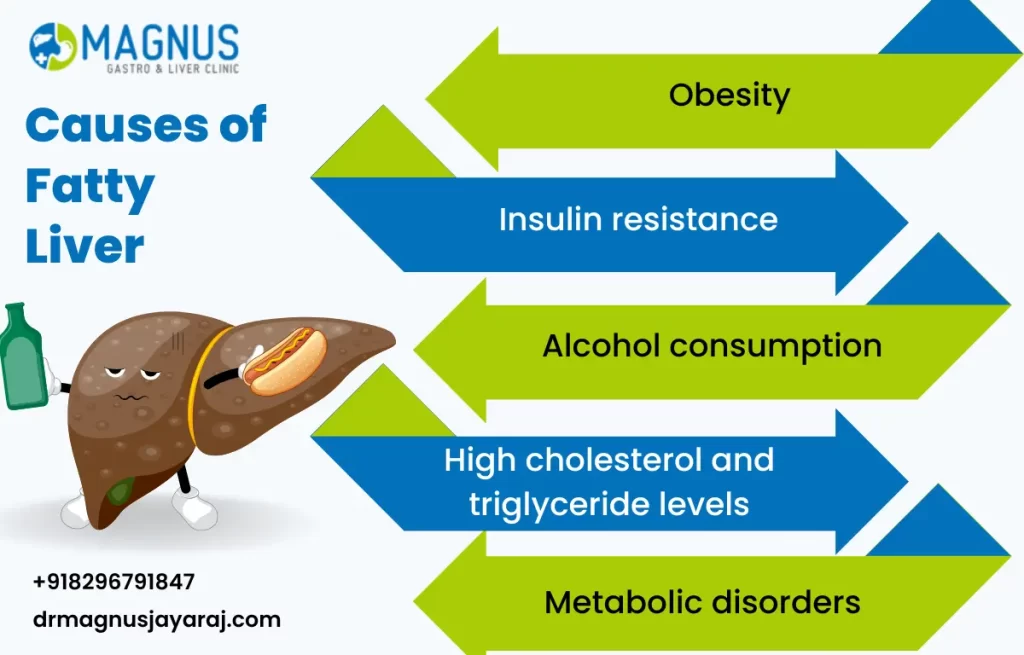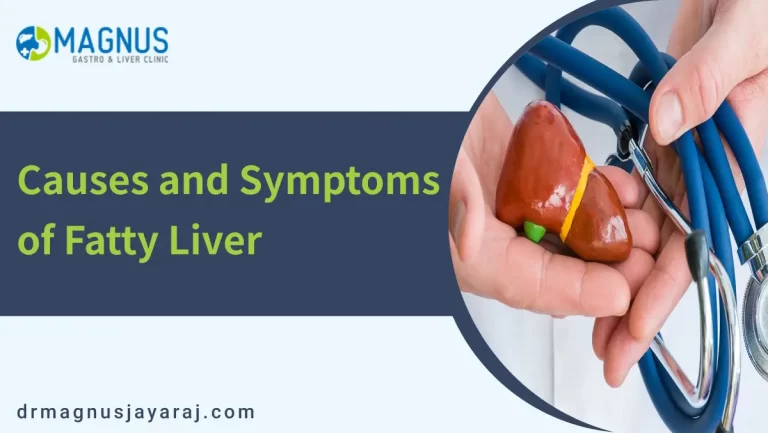Fatty liver disease (hepatic steatosis) is a condition by which fat accumulates in the liver. The build-up of fat can cause inflammation and damage to liver cells, leading to a range of symptoms and potential complications. In this article, we will explore the causes and symptoms of fatty liver disease.
Causes of Fatty Liver Disease
There are multiple causes and symptoms of fatty liver disease. Some of the causes include:
Obesity
It is one of the most common causes of fatty liver disease. When a person is overweight or obese, the liver can become overwhelmed by the excess fat in the body and may start to store it within the liver.
Insulin Resistance
This is another common cause of fatty liver disease. When the body becomes resistant to insulin, it can cause the liver to produce more glucose, which can lead to the accumulation of fat in the liver.
Type 2 Diabetes
People with type 2 diabetes are at a higher risk of developing fatty liver disease. High blood sugar levels can cause the liver to produce more fat, leading to the accumulation of fat within the liver.

High Cholesterol and Triglycerides
When the liver is unable to process these substances properly, it can lead to the accumulation of fat within the liver.
Rapid Weight Loss
This can cause fatty liver disease, especially if it is done through unhealthy means, such as crash dieting. When the body loses weight too quickly, the liver can become overwhelmed and may start to store fat.
Medications
Some medications can cause fatty liver disease, including corticosteroids, tamoxifen, and amiodarone.
Symptoms of Fatty Liver Disease
Compared to the causes and symptoms of fatty liver disease. Out of which, the symptoms can be quite mild, and some people may not experience any symptoms at all. However, if left untreated, fatty liver disease can lead to serious complications, such as liver failure.
There are two main types of fatty liver disease including non-alcoholic fatty liver disease (NAFLD) and alcoholic fatty liver disease. Alcoholic fatty liver disease is caused by excessive alcohol consumption, while NAFLD is caused by other factors that are not related to alcohol.
Some people with NAFLD or alcoholic fatty liver disease may not experience any causes and symptoms of fatty liver disease while others may experience the following symptoms:
- Fatigue: People may feel more tired or fatigued than usual. This could be due to the liver’s reduced ability to process toxins and produce energy.
- Abdominal Discomfort: Some people may experience discomfort or fatty liver pain symptoms in the upper right part of their abdomen.
- Enlarged Liver: In some cases, the liver becomes enlarged. This may be detected during a physical exam or on an imaging test, such as an ultrasound or MRI.
- Elevated Liver Enzymes: Certain liver enzymes become elevated. These enzymes are typically measured in a blood test and can indicate liver damage.
- Jaundice: In rare cases, the skin and eyes become yellow. This occurs when the liver is unable to process bilirubin, a waste product that gives bile its yellow color.
Other Causes and Symptoms of Fatty Liver
In addition to the above causes and symptoms of fatty liver disease, people with advanced fatty liver disease may experience other symptoms, such as:
- Ascites: A condition where the fluid accumulates in the abdomen. This can occur in people with advanced fatty liver disease who also have liver cirrhosis.
- Spider Veins: These are small, red blood vessels that appear on the skin and can be an advanced liver disease sign.
- Bruising: People with advanced liver disease may get fatty liver pain symptoms more easily like bruising due to the liver’s reduced ability to produce clotting factors.
- Confusion: In severe cases, advanced liver disease can lead to confusion, memory loss, and other cognitive issues. This is known as hepatic encephalopathy.
Conclusion
It’s important to see a healthcare provider if you experience any causes and symptoms of fatty liver disease as early diagnosis and treatment can prevent the condition from worsening and leading to serious complications.
In addition to medical treatment, lifestyle changes such as a healthy diet and exercise can also help manage fatty liver disease. By taking care of your liver health, you can prevent the development and progression of fatty liver disease, and maintain a healthy and active lifestyle.
Read also Best Laparoscopic Surgeon in Chennai.


